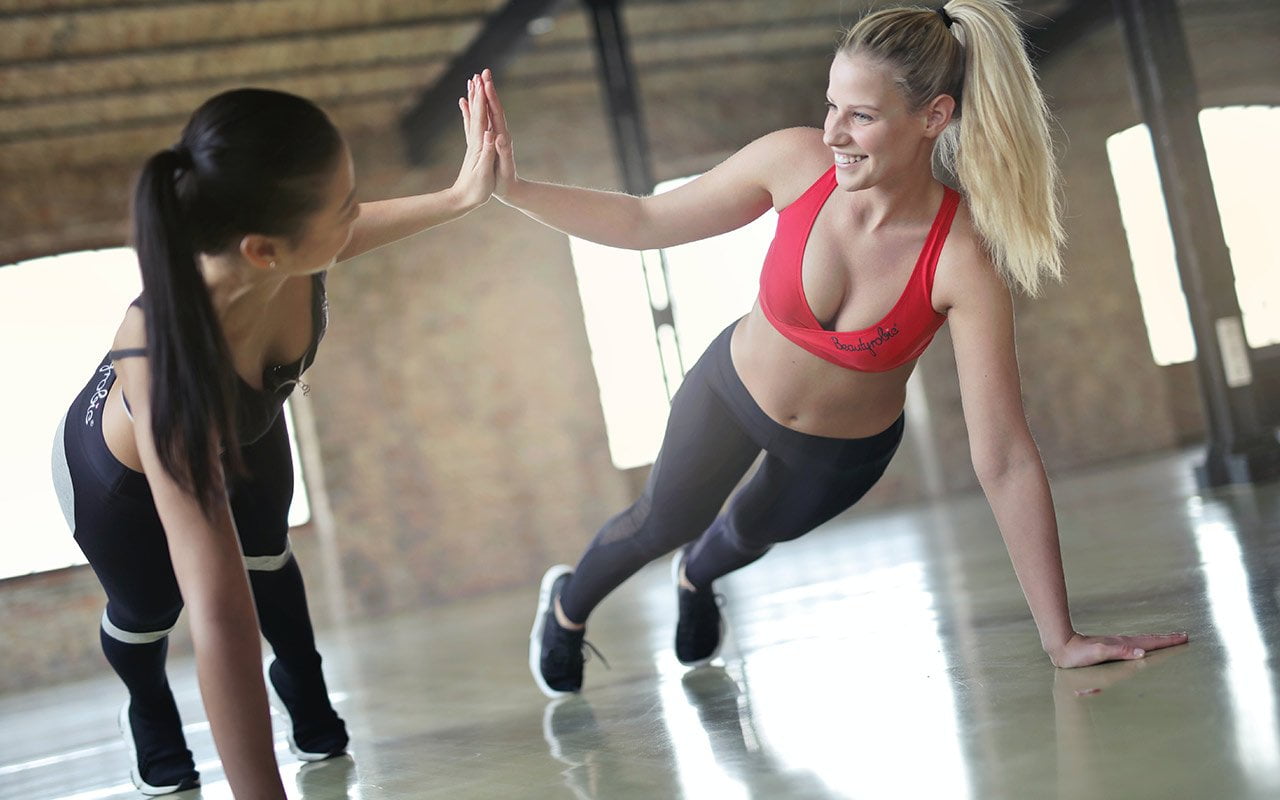Building muscle is a matter of building strength and size. It’s not simply a matter of putting in the hours that you’re working out. Of course, the more often you work out, the better your progress will be – but there are other factors to consider. For example, how long should your workout last if you want to build muscle? See this article for more information.
This article will give you guidelines on how long your workout should last based on your fitness level, how many sets and how much time should be spent resting between sets and exercises, what kind of exercises you should do and in which order, as well as tips on effective training strategies.
The length of your workout is a critically important variable in terms of muscle building, but it’s also often misunderstood. In this article, we’ll discuss the science behind muscle growth and how it applies to your workouts.
How long should a workout last?

You can choose the type of workout that works best for you. It all depends on your abilities, goals, injuries, equipment, and time available. But if you want to see real results, then you should work out for 45 minutes to an hour. For strength training, 30 minutes will do the trick. It’s the best time to work the major muscle groups: the legs, chest, and back.
For those who want to focus on gaining muscles, spending all day in the gym is not necessary. Just 20 to 30 minutes of weight training, 2 to 3 times a week is enough to see results. Focus on all muscle groups at least 2 times per exercise throughout the workout.
Your workout duration is only for exercise, and not for chores or taxes between sets. A typical full-body exercise consists of three sets of 10 reps, each of which consists of 8-10 exercises. Between sets, you have 45-60 seconds of rest.
The workout should not last less than 45 minutes and not more than 90 minutes. This allows you to push your body with high-quality reps. You’ll get less return on your investment if you do more. Splitting your workout is a good idea if you are inclined to train for longer.
Working out every day is okay as long as you don’t push yourself too hard. You should enjoy it and not be too strict, especially in times of injury or illness.
You must commit to working out a minimum of four to five times per week if you want to see the results on the scale. You’ll get there. You might start by doing two to three days per week, then gradually increase to five days. A 3-day full-body workout routine for beginners is not a bad suggestion for those who have never exercised before
You should not do the same muscle groups on consecutive days. Give them time to rest. You may find that you are able to work for only one muscle group on a 5-to-6-day schedule. You can go to the gym more often if you wish, but don’t overwork tired muscles. They need rest.
It is often said that exercise in the morning is more effective than any other time of day. Surprised?
A study published in the Washington Post found that evening workouts are more effective than other times of the day. The evening is more efficient for exercise than the morning. This is because athletes use less oxygen (which is how they consume less energy) to perform the same amount of exercise in the evening as in the morning.
Experts have always advised against exercising at night to maintain good sleep hygiene. A new study published in Sports Medicine on Oct. 29, 2018, suggests that you may exercise in the evening, as long as you do not engage in vigorous activity more than one hour before you go to bed.
A person with a moderate level of fitness should notice changes after two months of intense strength training. Results should be evident after four months. Most people require at least one year of hard work to achieve a truly toned physique.
Summary
What’s the bottom line? What is the best time to exercise if you want muscle growth as quickly as possible?
It will take approximately 45 to 90 minutes on average.
An effective workout may last for around 30 minutes with some programs. Some programs can take up to 30 minutes, while others may take several hours, especially if there are long rest periods between sets.
You don’t need to worry about how long your workouts will take as long as you have a well-designed training program. It doesn’t matter how long it takes.
Frequently Asked Questions
How long does it take to build noticeable muscle?
Gaining muscle is a relatively slow process. Depending on the individual, it can take about three to four weeks to notice a noticeable change. Really big changes are only visible after at least 3 months. However, as noted above, this process is highly dependent on your exercises, nutrition, and intensity of training. Exercise reasonably, but do not overdo it, otherwise, it will have the opposite effect.
Is working out 3 times a week enough?
We have no concept of how much is enough. Depending on your physical condition and diet, you should have a suitable workout. However, you should work out at least three times a week if you want to achieve your health and fitness goals in a reasonable amount of time while staying fit and healthy.
Is working out 4 days a week enough?
If you are used to working out multiple days per week, one day won't be enough to challenge your body enough for your body to make progress or maintain your fitness. The exact breakdown will vary depending on your goals. However, generally speaking, you should aim to work out four to five times a week if your goal is to maintain or improve your fitness.
Is it OK to work out every day?
Working out every day is okay as long as you don't push yourself too hard or become obsessive. You should enjoy it and not be too strict, especially in times of injury or illness.
Is working out 6 days a week too much?
You should not train the same muscle groups on different days. Give them time to rest. Some people work well with a 5 to 6-day schedule. They only need to focus on one muscle group per day. Examples include Push-Pull-Legs (PPL) or 3-day full-body workout splits, etc. In general, you need to alternate muscle-building exercises with rest days for groups. muscles so they can recover, avoiding muscle strain or more serious complications. You can go to the gym more often if you want, but don't overwork your muscles. They need rest.
How do I get abs?
While crunches are great for toning abdominal muscles and strengthening your core, it is important to lose subcutaneous fat as well as visceral fat before you can get rid of those pesky abs. The American Council on Exercise (ACE) states that you should reduce your body fat by around 14 to 20 percent in women and 6 to 13% in men.
Can I workout 7 days a week?
Yes, cardio seven days a week can help you lose weight. It all depends on how intense the workouts are. Surprisingly, a study published by the American Physiological Society Journal found that a cardio program that uses lower intensity workouts is more effective than high-intensity ones.
Should I do the same workout routine every week?
Exercising the same routine daily can cause strain and soreness. You don't have enough time to allow your muscles to heal and grow by repeatedly using the same muscle groups. To give your body the time it needs to recover, I recommend that you train different muscle groups on alternate days.
Is it OK to exercise with sore muscles?
You can absolutely exercise when your body is sore, just avoid exercises that focus on the muscles that are in pain. For example, if you have pain in your buttocks, you can do exercises to develop chest muscles
Should You Limit the Length of Your Workouts to 45 Minutes?
Is it a good idea to limit your workouts to 45 minutes? You'll often hear from the exercise police that lifting weights should not be done for longer than 45 minutes.
You'll fall in testosterone, your cortisol levels will go up, and you'll find yourself trapped in a catabolic black hole that you can't escape. One of the most absurd ideas I have ever heard is that you should stop training after 45 mins because your hormone "tipping point" has passed.
This claim is false on several levels.
Some workouts that last more than 90 minutes have been proven to increase testosterone levels by at least two hours after they are over. In recent years, it has been questioned whether the short-term hormonal effect of training can have a significant impact on muscle growth.
Researchers analyzed data from 56 men who participated in a 12-week resistance training course. It was crucial to note the change in testosterone levels after exercise. You'd expect two things when it comes to building muscle.
The most muscle would be built by those who have the highest testosterone levels after training. The smallest testosterone response after training would result in the loss of muscle.
However, when the researchers looked at the data, they could not find any significant relationship between exercise-induced testosterone increases and gains in muscle size or strength.

